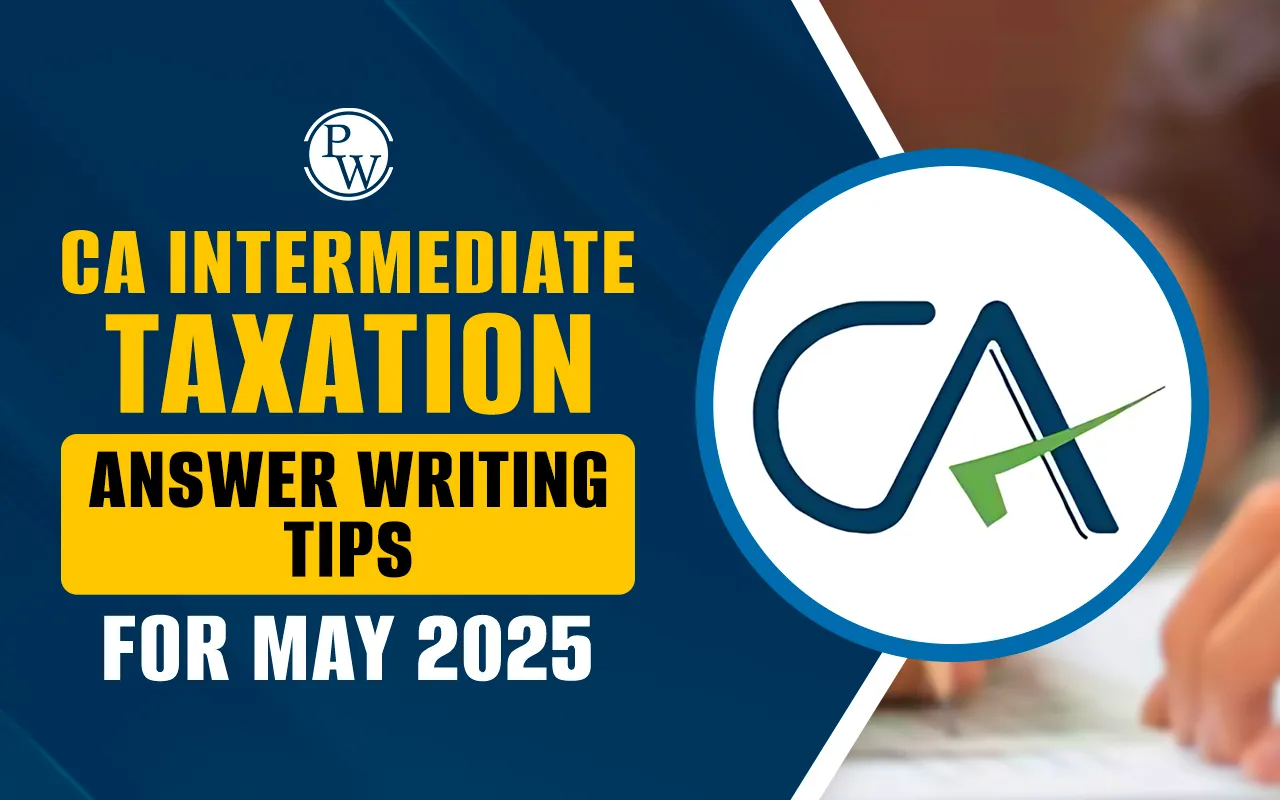
Taxation is one of the most challenging yet rewarding subjects in the CA Intermediate curriculum. The ability to write clear, concise, and accurate answers in the taxation paper can significantly affect your overall performance. With the May 2025 exams approaching, it is essential to refine your Taxation Answer Writing skills to maximize your chances of success. Read about practical tips and strategies to master the art of presenting taxation answers effectively.
Understanding the significance of CA Intermediate Taxation Answer Writing is the first step towards excelling in the exam. Answer writing is not just about presenting knowledge but also about demonstrating a clear understanding of concepts, laws, and applications. Taxation papers often test your analytical ability to interpret legal provisions and apply them to various scenarios.
Effective Taxation Answer Writing ensures that your responses are well-structured, comprehensive, and precise. Examiners appreciate answers that follow a logical flow, cite relevant provisions, and use professional language. Additionally, well-written answers showcase your problem-solving skills, helping you score higher marks. For May 2025, adopting these practices can make a substantial difference in your performance.
Mastering Taxation Answer Writing requires a combination of technical knowledge and writing skills. The following are some detailed strategies to excel:
Before attempting any question, spend a few moments analyzing it. Understand what the examiner is asking, whether it’s a direct provision-based question or a case study requiring application. Misinterpretation can lead to incorrect answers, so take time to break down the question and identify keywords.
Planning is a critical aspect of Taxation Answer Writing. Jot down the main points you intend to cover before you start writing. This helps in organizing your thoughts and ensures that your answer has a logical flow. For case studies, outline the facts, legal provisions, application, and conclusion in your plan.
Citing relevant sections of the Income Tax Act or GST laws demonstrates your understanding of the subject. Accurate references add credibility to your answers. For example, if a question pertains to deductions, mentioning Section 80C or 80D enhances your response's quality.
Taxation papers require a formal tone and professional language. Avoid using casual phrases or slang. Instead, focus on presenting your points clearly and concisely. A professional tone reflects your readiness to handle real-world tax scenarios.
A well-structured answer is easier for examiners to follow. Divide your response into:
Introduction: Briefly state the context or provision.
Body: Elaborate on the relevant law, analysis, and application.
Conclusion: Summarize the key points or provide a definitive answer.
Time management is crucial during the exam. Allocate time to each question based on its marks and complexity. Practicing under timed conditions helps improve your speed and accuracy.
Incorporating practical examples or illustrations enhances your answer's clarity and relevance. For instance, when explaining GST input tax credit, use a hypothetical scenario to demonstrate its application.
Use underlining or headings to draw attention to key points. Highlighting ensures that examiners can quickly identify the critical aspects of your answer, improving readability and scoring potential.
Mistakes such as misquoting sections, providing incomplete explanations, or skipping steps in calculations can cost you marks. Double-check your answers for accuracy and completeness before moving on.
Regular practice is vital for improving Taxation Answer Writing. Solve past papers and mock tests to familiarize yourself with exam patterns and identify areas of improvement.
Even well-prepared students make errors in taxation exams. Being aware of these common pitfalls can help you avoid them:
Misquoting Legal Provisions
Accuracy is paramount in taxation. Ensure you memorize important sections and provisions correctly. Use mnemonics or visual aids to help retain complex information.
Overlooking Assumptions
If a question lacks specific details, clearly state any assumptions you make. This shows the examiner that you have thought through the scenario logically.
Writing Lengthy Answers
While detail is important, avoid over-explaining. Stick to the point and ensure that your answers are concise yet comprehensive. Lengthy answers may waste valuable time and could frustrate the examiner.
| Also Read: |
| CA Intermediate Exam Guide for Group 1 and Group 2 |
| CA Intermediate Previous Year Question Papers |
| Tips to Master Cost and Management Accounting for CA Intermediate |
